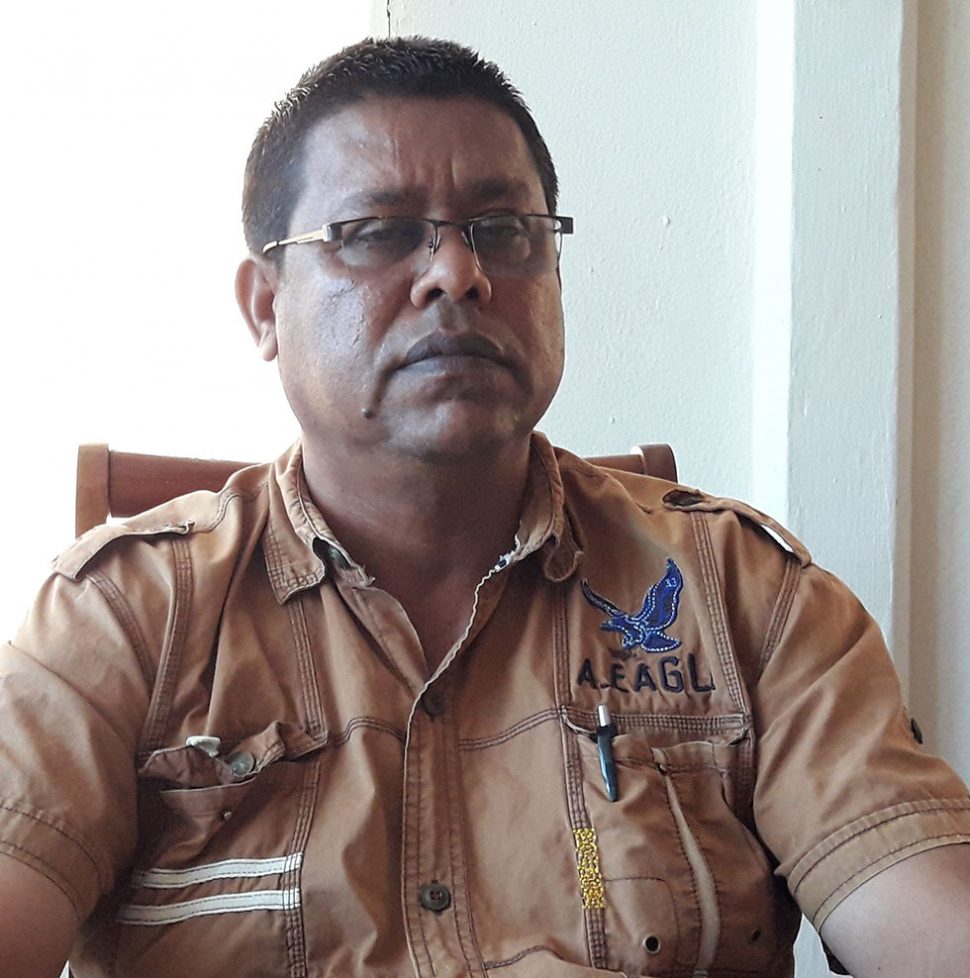
Mohindra Persaud, CEO Nand Persaud Company
July 15 2018
Nand Persaud and Company Limited has started purchasing rice from neighbouring Suriname in anticipation that local production will not be sufficient to fulfill its international commitments.
Mohindra Persaud, Chief Executive Officer (CEO) of the company, indicated that the company plans to purchase approximately 5,000 tonnes of rice from Suriname to be shipped immediately to Haiti in order to fulfill their promise to that country. He noted that on Thursday, the first shipment was loaded.
Persaud, explaining the reason for the imports, said that the company has anticipated that rice production in Guyana will decrease. As a result, it saw the need to purchase from Suriname in order to be certain that it will be able to meet the market demands.
“We predict that they would have a fall in production so we don’t want to wait for the last moment when that happens and then we will end up in some serious and embarrassing positions,” he said.
According to Persaud, in November of last year, the company recognized that Guyana was heading for a large crop, and so saw the importance of expanding its market. “We go on a very aggressive marketing campaign and we got Cuba early last year, then we take on the Haiti market,” he explained.
However, Persaud said that in April of this year, after noticing the rainy weather and the terrible conditions of the dams leading to the cultivation lands, the company recognized the challenge that farmers would face in harvesting the crop. As a result, it realized that a decline in production should be expected.
He said that the company had expected at least 80% production in Guyana, however, it realized that it may get 65% to 70% production, depending on the weather conditions and the conditions of the dams.
Persaud noted that it is expected that with the new crop, it may purchase at least 15,000 tonnes of rice from Suriname to fulfill its orders.
“We sense it, and we promise people, so we start to look at where we can get supplies from and Suriname has always been our B plan and our neighbour and it is available there, so we start take from them,” he stated.
When asked if it would be feasible for the company to purchase rice from Suriname, Persaud said, “It is feasible. We value our promise. If we can make a profit, that is a plus but if we can fulfill our promise that is what we are looking at.”
Persaud lamented the need for works to be done on access dams throughout the year.
“We had an early rain this season, it really destroy the dams during the harvesting; make it hard for the farmers to plant rice.”
Persaud also stressed that he has been encouraging Region Six for years to purchase a grader which would assist in works on the dams, however, it is yet to do so.
Additionally, Persaud explained that the work force is affected since workers are reluctant to head into farming areas by boat because it may be unsafe.
“Using a boat, you always reach late. Some people go down with the boat, spend the night, so they work and come back the other day. It make the work very difficult because when you use a tractor you might never meet,” he said. He noted that due to those struggles, farmers had no choice but to plant a small crop with the hope that future crops would be different.
Regional Chairman David Armogan had also stated that one of the major issues in the region was the conditions of dams, since farmers were finding it difficult to access their lands. However, Armogan has also noted that the region may not have enough money to complete the dams because of financial constraints. “…Virtually every single cultivation dam in this region has been destroyed and last year NDIA [National Drainage and Irrigation Authority] only give us about $5 million to fix dams…$5 million can fix a few dams only,” Armogan stated. “Right now, we are anticipating that we may lose between 5,000 to 7,000 acres which may not be able to be [sown] this crop because of the conditions of the dam,” he said
last week.
Armogan had noted that the region may have to depend on the farmers to assist in the preparation of the dams to provide some sort of accessibility.
Meanwhile, Persaud also took the opportunity to once again call for more lands to be made available for farming in Region Six, and across the country.
Persaud pointed out that if persons leaving school want to enter the farming industry, there are no lands available for them. “There is no opportunity then for young farmers. The only way we can attract young farmers and expand farming is more land because we maxed out the land space,” he stated.
He also explained that there have been several discussions with ministers, whom he believed seem open to the idea, but he added that there is need to see something materialise, even “in a small way.”
“If we want to increase our growth in this region, in this country, every single year we have to do something; we can’t do the same thing and get increase growth,” he noted.
Persaud advised that lands can be made available in the Numbers 52 to 58 Corentyne areas, Mara, East Bank Berbice and Orealla.
“Even in Port Mourant, all these areas used to plant in the past and now they are just idle. We need to put them back under cultivation,” he said, adding that the initiative can either be conducted through private investment or a public-private partnership.
